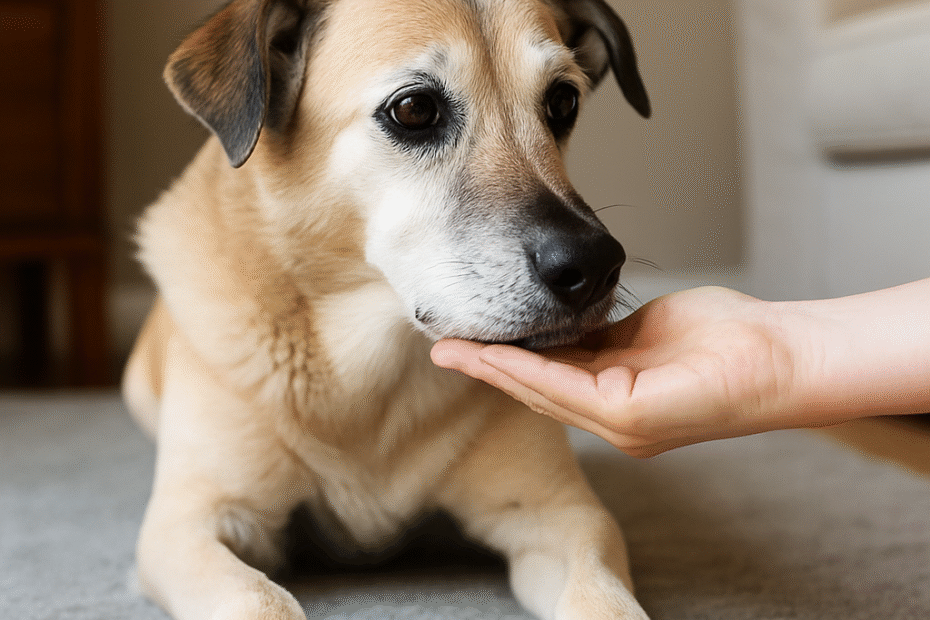It is easy to assume training is only for young dogs. But in reality, older dogs have just as much to gain from learning new skills and keeping their brains active. Why senior dogs need training too is a message that often gets overlooked. Yet, it is one of the most important ways we can continue to support our dogs as they grow older.
Behaviour Changes Are Often a Sign They Need Help
As dogs age, their needs shift. They may develop arthritis or find it harder to see or hear clearly. Sometimes they become more anxious or reluctant to do things they once loved. These changes are not disobedience. They are quiet ways of saying, “I am not sure about this anymore.” A vet check is an absolute must if you’re seeing new behaviours or signs of pain/
Training can help bridge the gap. You can teach your older dog new ways to feel safe and supported. A gentle chin rest cue, for example, lets your dog know what is expected and helps reduce stress during handling. A familiar sound or hand signal can give them confidence when their hearing starts to fade.
The Pet Professional Guild Australia has written lots of useful artices about the value of positive training across a dog’s entire life. It is worth scrolling through for a read if you are exploring how training supports emotional and physical wellbeing:
👉 Read the articles here
Why Senior Dogs Need Training Too Is About Connection, Not Correction
Training an older dog is not about control. It is about staying connected. Short, low impact games help them stay mentally alert and give them something meaningful to do. A session can be as simple as walking together through the house, playing scent games, or practising a hand target.
If your dog has never had formal training, now is still a good time to start. Many older dogs enjoy the slower pace and the gentle structure. They already know the world around them. Now it is about making that world feel predictable and kind.
Training Builds Routine and Reduces Anxiety
One of the reasons why senior dogs need training too matters so much is because sometimes routine becomes more important with age. A dog who knows what to expect is less likely to feel stressed. Or a dog who is used to novelty won’t be alarmed by changes Consistent cues and calm reinforcement give them something solid to rely on as their senses and stamina change.
You do not need to overhaul your day. A few thoughtful changes, like adding in a daily sniffy walk or introducing a mat cue for relaxation, can make all the difference.
Support That Adapts With Them
If you are noticing changes in your dog’s behaviour or wellbeing, personalised support can help you both adjust. I offer in home consultations that are tailored to your dog’s specific needs and comfort level. These sessions are designed to be calm, collaborative, and rooted in trust.
👉 Book a private consultation here
Why senior dogs need training too is a reminder that ageing does not mean the end of learning. It means we shift our approach, listen more closely, and honour the bond we share.
Game On! Let’s Play!
Hxx

